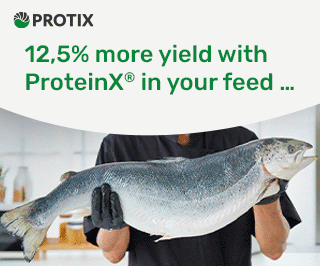Marine Harvest will have to wait until sometime between the end of January and October 2018 to learn whether the new documents it must file with Irish authorities are enough to secure a place for a second farm off Shot Head in County Cork, a site seen as crucial to its growth in Ireland.
During two in a series of public hearings chronicled by The Irish Examiner, opponents to the company’s plans to produce 3,500 tonnes of salmon at the new Bantry Bay site managed to force an expanded environmental assessment out of Marine Harvest Ireland. Now, the Aquaculture Appeals Board appears to have added its own environmental due diligence demands to the company’s license application.
“The Board is now proceeding to seek that additional information,” an official statement said, noting that opponents had sought more info on the dispersal of pollutants and sea lice by ocean tides. The Board wants four other bits of scientific detail from the company.
River controls
They want a risk assessment done for sea lice coming into contact with wild salmon entering and leaving the Dromagowlane and Trafask rivers. Earlier info from the company had reportedly said this risk was only noteworthy if farms were placed right at the mouths of these rivers.
Notes on the impacts of fish-farming on fresh water quality and on otters living in the river are now being sought, as are assessments of the impact on seals and birds living nearby. More info on how shellfish farming might be affected is also demanded.
The Examiner put the Bantry Bay farm’s projected cost at EUR3. 5 million and reported Marine Harvest already has a license for a 16-pen area facility. The new site would be its second in the area and one of eight marine grow-outs — four in the Republic’s north, four in the south — to go with just one processing site at Rinmore.
Shot Head, however, is proving a headache for the company. Its local leadership has been vocal about licensing delays, saying they’re holding harvested volumes back (to about 3,120 t in third-quarter 2017), just as global demand grows. The company’s Irish production fell five percent in 2016 to 8,441 t, although third-quarter 2017 looks no worse for wear, with operational EBIT over the year ago period doubling to EUR3.23 per kilogram.
Biomass offsets
Despite the business zeal, however, the company’s sites have bee plagued by pancreas disease and parasites that have cut growth back. Shot Head appears intended to reverse those losses.
“Unfortunately, we continue to turn away business, as we are finding it impossible to grow even with our existing customers,” MHI managing director, Jan Feenstra, told the newspaper in August before complaining about the pace of licensing which, for its first Bantry Bay site, took a reported four years.
Desperate to grow locally, Feenstra earlier in 2017 penned a EUR 2 million deal with Mannin Bay Salmon Co. Ltd. to jointly grow salmon on sites in Bertraghboy Bay in Galway. The five-year deal was for three crops of salmon to feed its Rinmore Processing Plant in the north.



